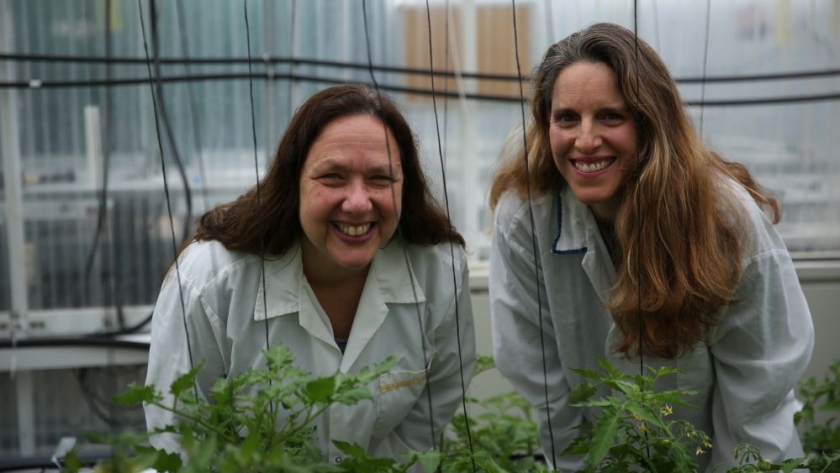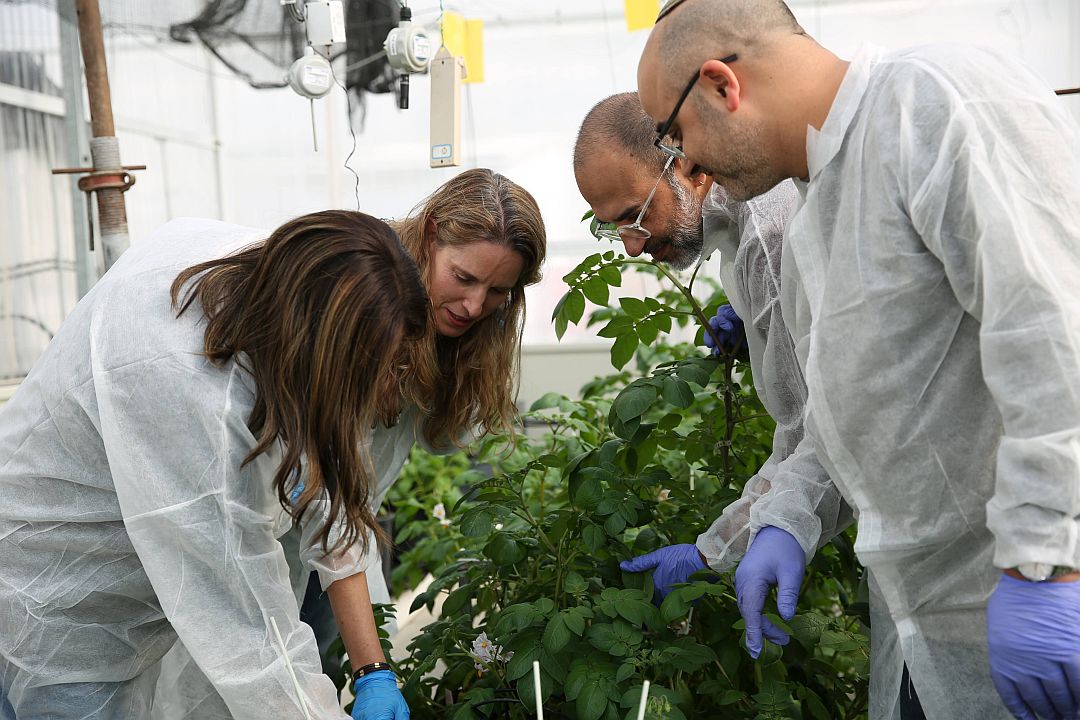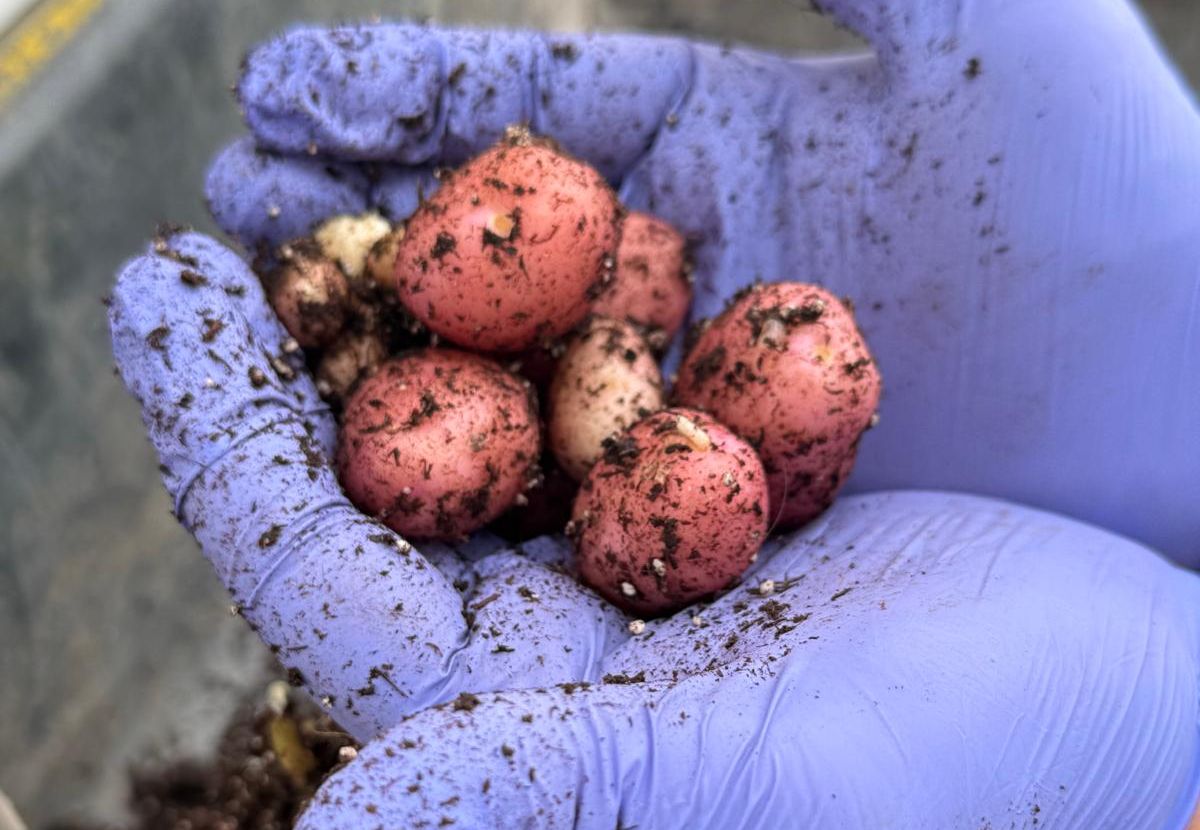
By Agroempresario.com
Israel-based molecular farming startup Finally Foods is preparing for its first field trial of genetically engineered potatoes capable of producing casein, a key dairy protein. Less than a year after launching, the company is set to begin testing in southern Israel, marking a significant milestone in the development of plant-based dairy protein alternatives.
“One of the key challenges in molecular farming is the lengthy time-to-market,” said co-founder Dafna Gabbay. “Finally Foods is demonstrating that molecular farming can efficiently produce high-value proteins at scale in record time by drastically reducing the trial-and-error phase.”
By harnessing AI-powered technology from computational biology firm Evogene—a key shareholder—Finally Foods has accelerated the process of developing potatoes that express high levels of casein. The company uses predictive modeling to simulate the effects of genetic modifications on plant growth, development, and protein expression before moving to greenhouse and field trials.
“This field trial is a major validation point for Finally Foods and will allow us to start working with dairy companies to develop dairy products with our casein,” Gabbay stated. “The integration of AI has not only significantly accelerated development but also enables us to obtain high levels of functional natural casein in potatoes through a highly efficient and cost-effective extraction process.”
The production of casein through molecular farming presents an alternative to precision fermentation, a method widely used to grow dairy proteins in genetically engineered microbes. While precision fermentation has gained traction, Finally Foods argues that molecular farming offers superior scalability and cost-effectiveness.
“Scaling up in molecular farming just means having more fields,” explained Gabbay. “In contrast, every time you scale up precision fermentation, you face new challenges with larger fermenters, making the process more capital- and resource-intensive.”

However, molecular farming also presents regulatory challenges. Companies must obtain approvals not only for growing genetically modified (GM) plants but also for marketing their derived ingredients. Additionally, US regulators have cautioned startups about allergen management when producing animal proteins in GM crops like soybeans.
Finally Foods selected potatoes as the host plant for its casein production due to their simplified downstream processing and purification requirements. Compared to crops like soybeans, extracting and purifying casein from potatoes is more straightforward, reducing production costs and time.
“We are not aiming to supply the market with a mixture of casein proteins and other proteins from the host plant,” said Gabbay. “We produce clean, pure casein proteins without DNA from the genetically engineered host so that the final product is not a GMO.”
While naturally low in protein—around 2%—potatoes have the potential to reach protein concentrations of 10% or even 20%, according to Gabbay. “Even with our current expression levels in first-generation plants, we believe we can achieve commercial viability at scale.”
The field trial will also focus on refining cultivation practices to optimize protein yields. “Our first goal is to generate enough potatoes to scale up our extraction process and produce samples for internal research and external collaborations. We are also implementing techniques to enhance growing conditions for higher protein content in the tubers.”
Casein naturally exists in milk as a micellar structure composed of four individual proteins: alpha 1, alpha 2, beta, and kappa casein. This structure is crucial for casein’s functionality in dairy products.
Unlike precision fermentation, where each casein protein must be produced separately by different microbial strains, molecular farming enables the potential expression of multiple casein proteins in the same plant.
“We can produce all four casein proteins in one plant,” said Gabbay, “but right now, we are testing plants that produce different combinations of casein proteins.”
Notably, the casein micelles—the molecular structures essential for dairy functionality—appear to form naturally inside the potato. “The whole brilliance of molecular farming is that the micelles are formed inside the plant,” Gabbay added.
Dairy and consumer packaged goods (CPG) companies are increasingly exploring alternative protein sources due to sustainability concerns and supply chain challenges.
“I don’t think there is any major dairy company in the world that isn’t researching cow-less products,” said Gabbay. “Whether due to climate concerns, sustainability goals, or potential supply shortages, alternative dairy proteins are becoming a priority.”
Recent events, such as avian flu outbreaks affecting cows in California, have further highlighted vulnerabilities in the dairy supply chain.
“I think in the future, we’ll have dairy from cows, from fermenters, and from plants,” Gabbay predicted. “Our goal is to enter the market no later than 2028.”

Molecular farming refers to the use of genetically modified plants to produce valuable compounds such as vaccines, enzymes, and proteins that they would not naturally generate. Unlike traditional genetic modifications aimed at improving crop traits like yield or disease resistance, molecular farming transforms plants into biofactories for high-value ingredients.
Recent advancements have led to a surge in molecular farming startups producing ‘animal-free’ proteins. Companies argue that this approach is more ethical, sustainable, and potentially more efficient than industrialized animal agriculture.
Finally Foods’ casein-producing potatoes represent a promising step toward integrating molecular farming into mainstream food production, offering an innovative, scalable, and sustainable alternative to traditional dairy proteins.
